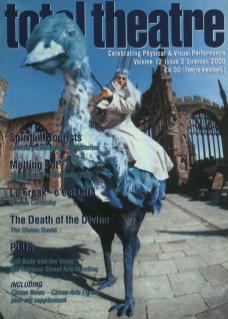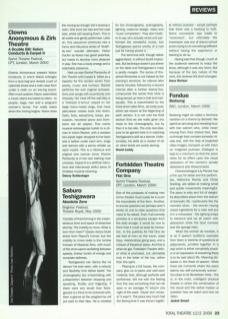‘Crystals of fluid forming in the instantaneous time and space of detached eternity. The inability to move. What is born from here?' Classic dance blurb direct from Pseud's Corner, but the inability to move really is the central linchpin of Absolute Zero, with much of the show spent vacillating between speedy, sinewy bursts of energy and complete stillness.
Teshigawara can dance like no dancer I've ever seen, with a velocity and flexibility that defies belief. The choreography, too, is fascinating, with juxtaposition between stopping and speeding, fluidity and fidgeting. If there were any doubt that Teshigawara is a force to be reckoned with, then a glance at the programme will put paid to that idea. He is credited for the choreography, scenography, lighting, costume design, video and 'music compilation'. They don't bother to say who actually wrote and performed the wonderful music, but Teshigawara seems worthy of a nod just for having picked it.
The technical skill, though rather aggrandised, is without doubt impressive. But technique doesn't put dinner on the table and Teshigawara's meal is pretty meagre. The sense of theatrical flimsiness is not helped by the evening's structure. An interval after twenty minutes, followed by a second interval after a further twenty-five, compounds the sense that what is being served up here is frail and inadequate. This is exacerbated by the three short video films, all pretty poor, which are shown at the beginning of each section. It is not until the third section that we are really given any meat to the choreography, but by then it is too late. The only real pleasure to be gained here is in watching Teshigawara's skill as a dancer. Unfortunately, his skills as a creator of art on other levels are sorely lacking.

